Hull of a Hockey Player

Hull of a Hockey Player

A sixth-round pick (117th overall) by Calgary in 1984, rookie Brett Hull was traded to the Blues with forward Steve Bozek for defenseman Rob Ramage and goaltender Rick Wamsley on March 7, 1988. He finished the season with 34 goals and 64 points, a portent of things to come.
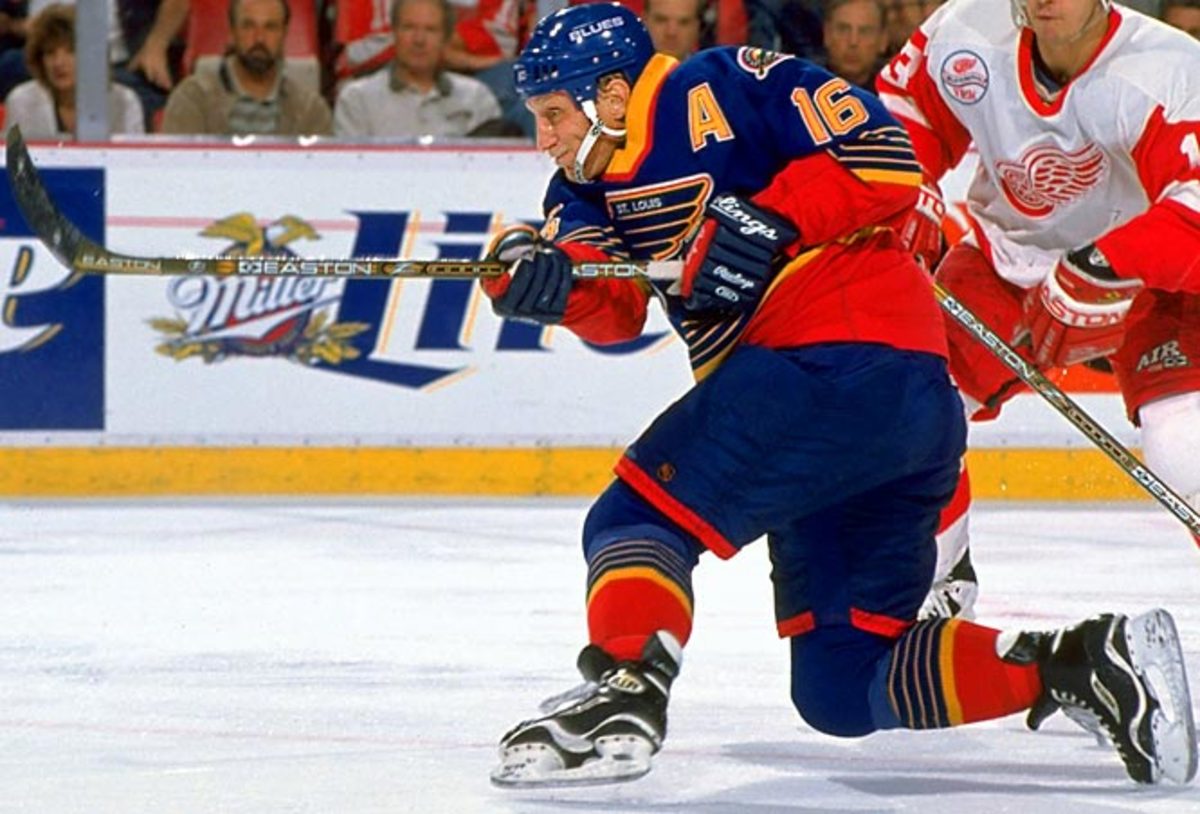
Hull arrived in St. Louis with his Hall of Fame father's booming slapper and a reputation for being lazy and overweight. Brett's nickname, Pickle, was inspired by his shape, but his numbers were fit: a team-leading 41 goals and 84 points in 1988-89. Yet, Blues coach Brian Sutter ordered him to work harder.
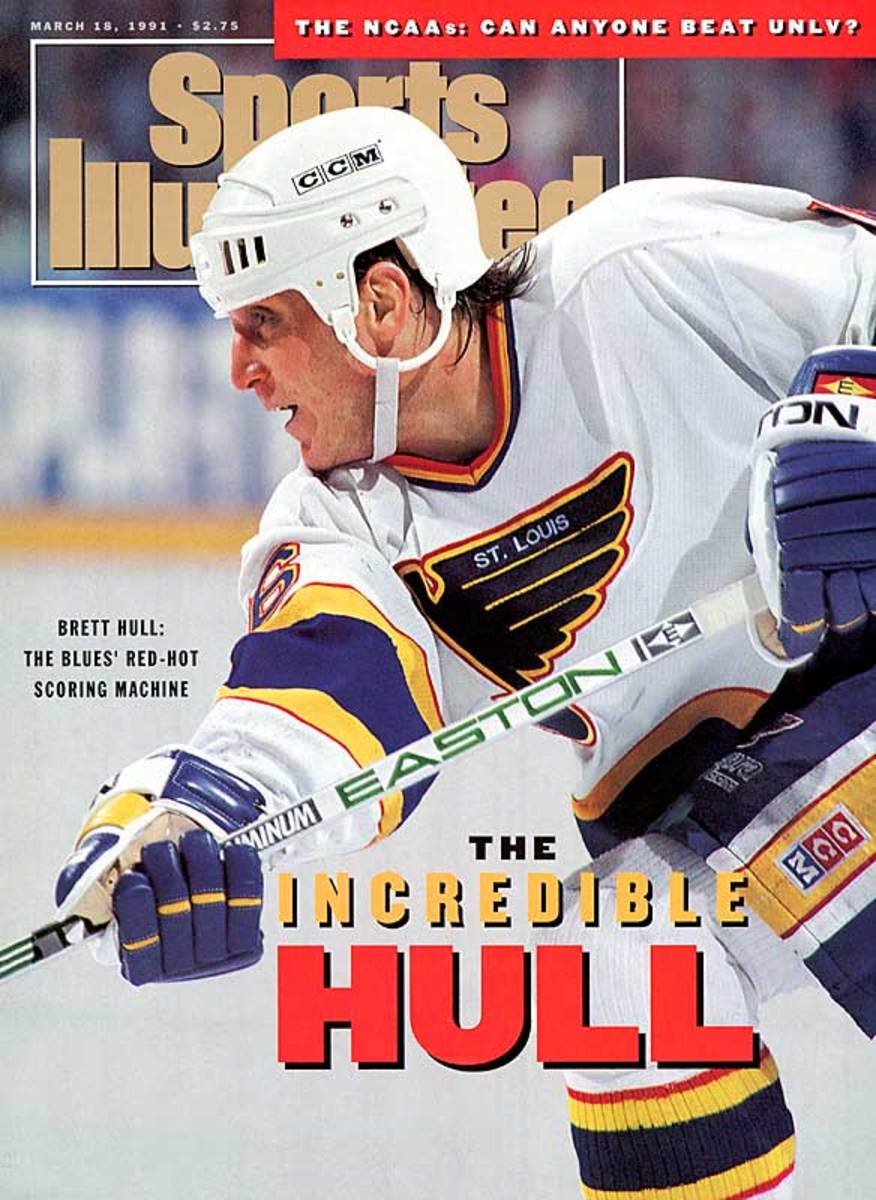
By his third full season in St. Louis, the Golden Brett had become a scoring machine. Coming off a team-record 72-goal performance in 1989-90, Hull notched 86 goals and 131 points in 1990-91, finishing second to Wayne Gretzky in the scoring race but winning the Hart Trophy and Lester Pearson Award.
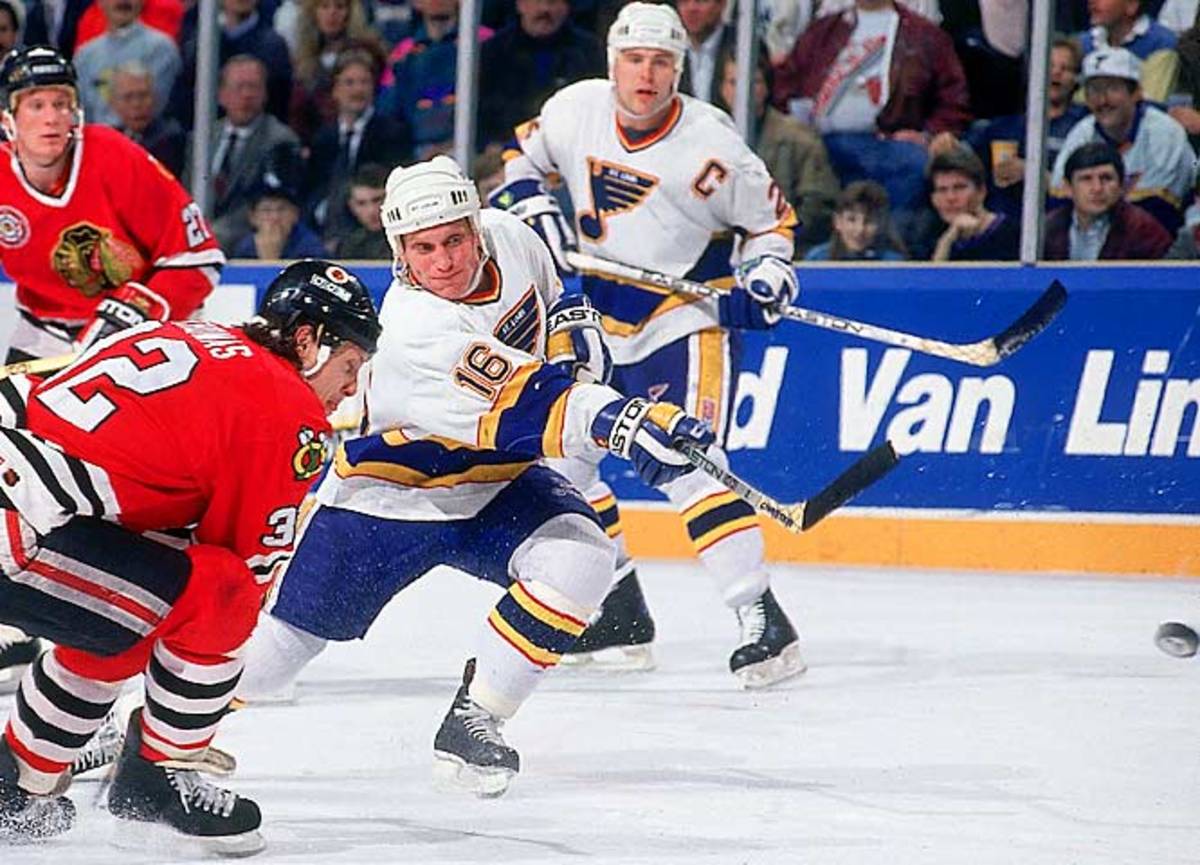
Set up by the passing of linemate Adam Oates for three seasons (1989-92), Hull achieved such illustrious milestones as 50 goals in 50 games (twice) while becoming the second player in NHL history to record three-straight 70-goal seasons. Hull's two-year total of 158 was second to Gretzky.
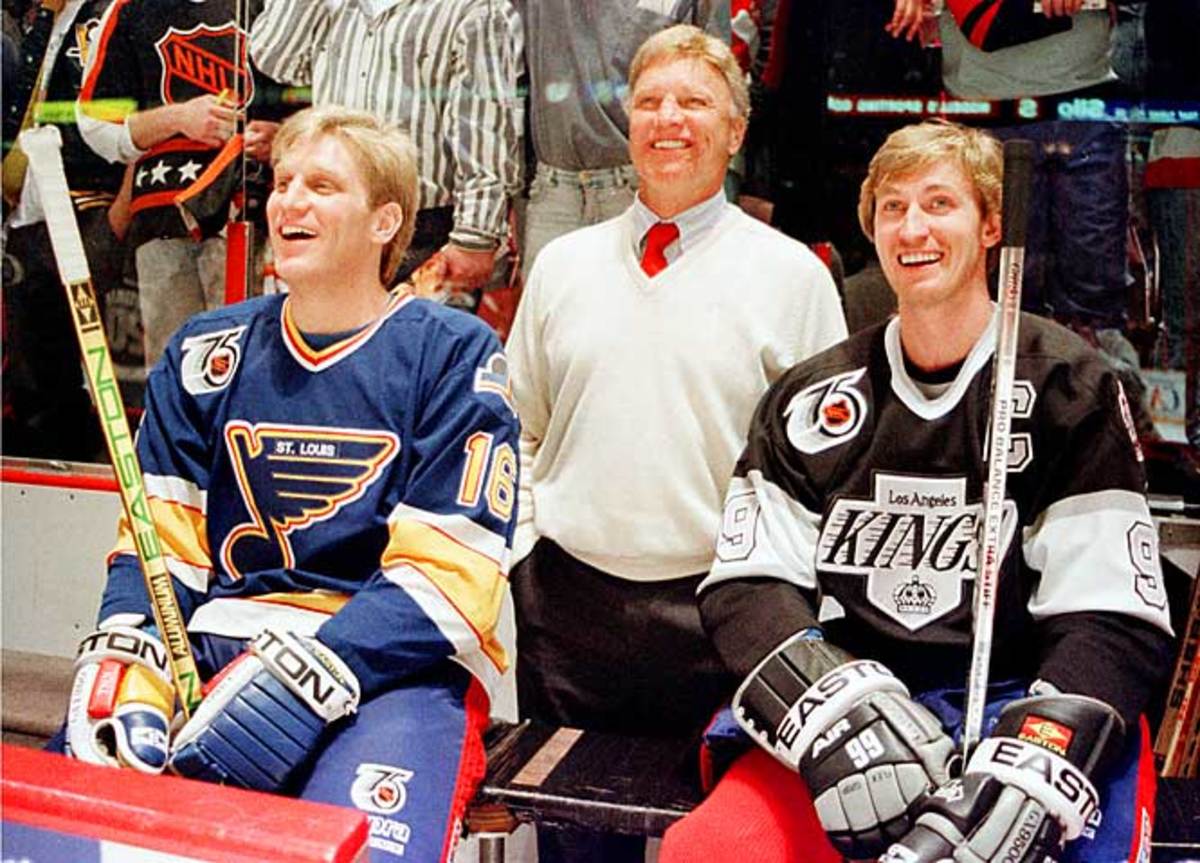
Rapidly equaling the stature and occasionally topping the feats of father Bobby (center, who never scored 50 in 50), Brett became one of the NHL's three bona fide superstars of the early `90s with Pittsburgh's Mario Lemieux and soon-to-be teammate Gretzky (right).
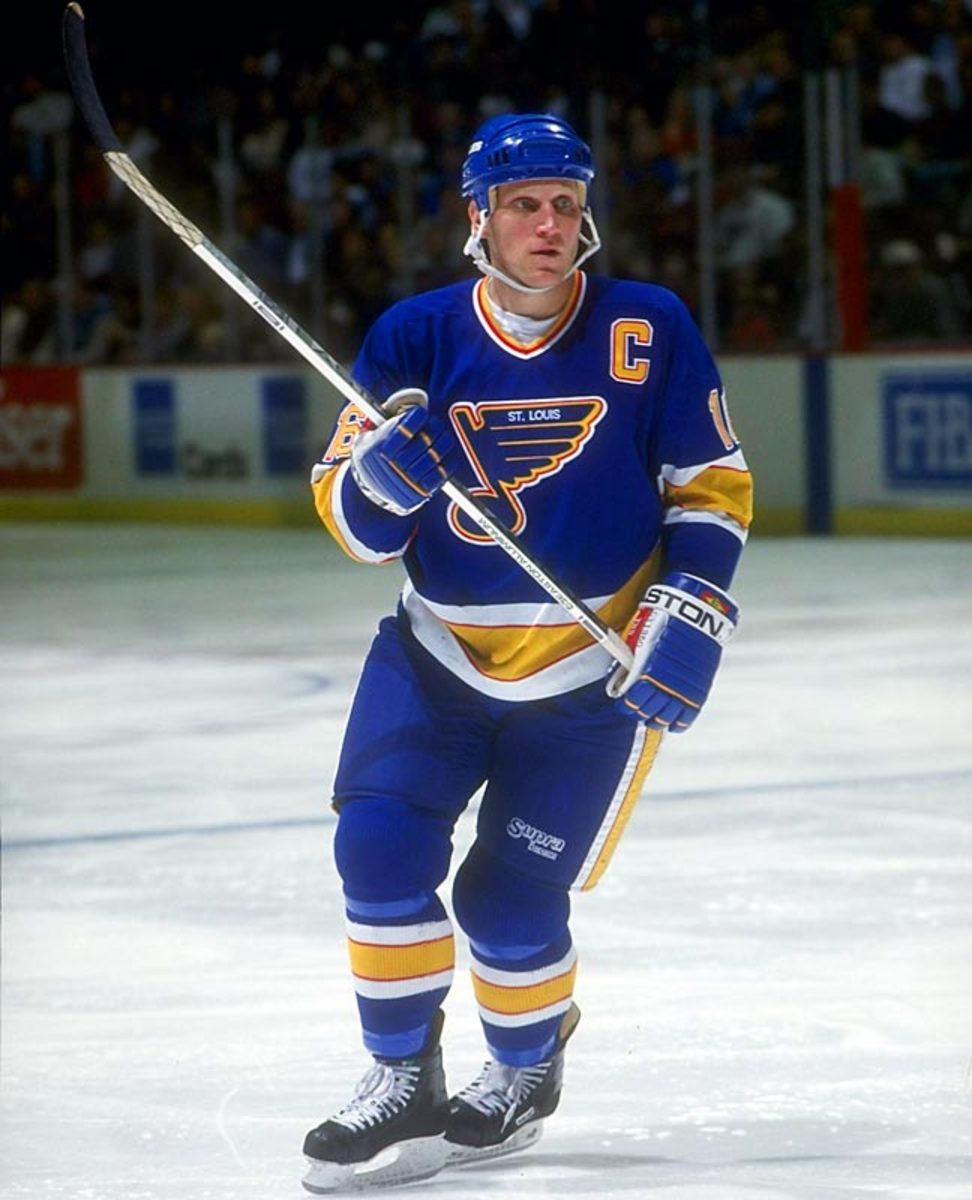
Awarded the captaincy, Hull's astronomical goal totals dipped with the departure of Oates to Boston in February 1992, but he nevertheless posted two more 50-goal seasons, giving him a streak of five.
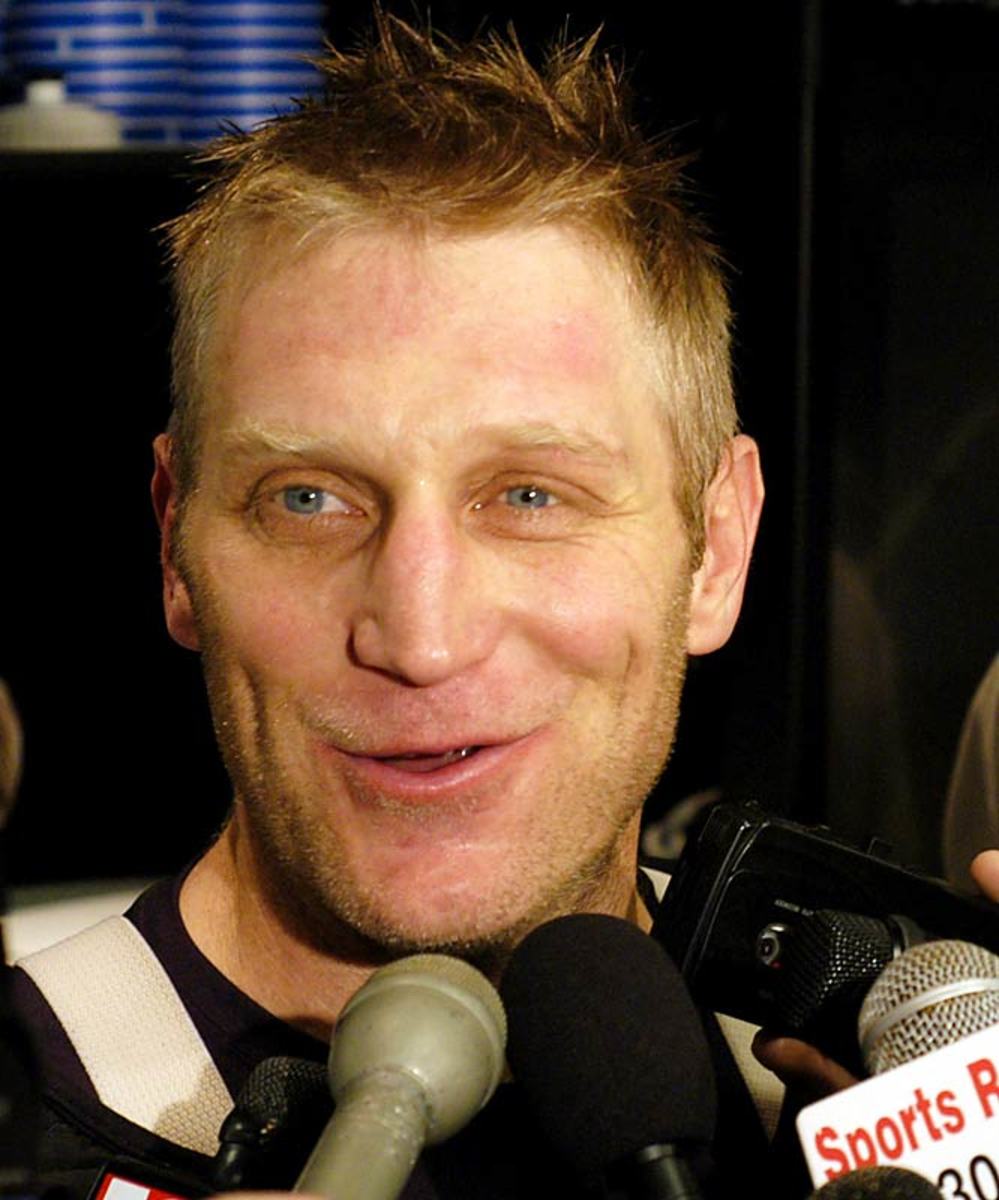
Outspoken and unafraid to speak his mind on even the most sensitive subjects, Hull became a media magnet, sometimes to his own detriment when officiating was concerned. "I'm not real subtle," he said.
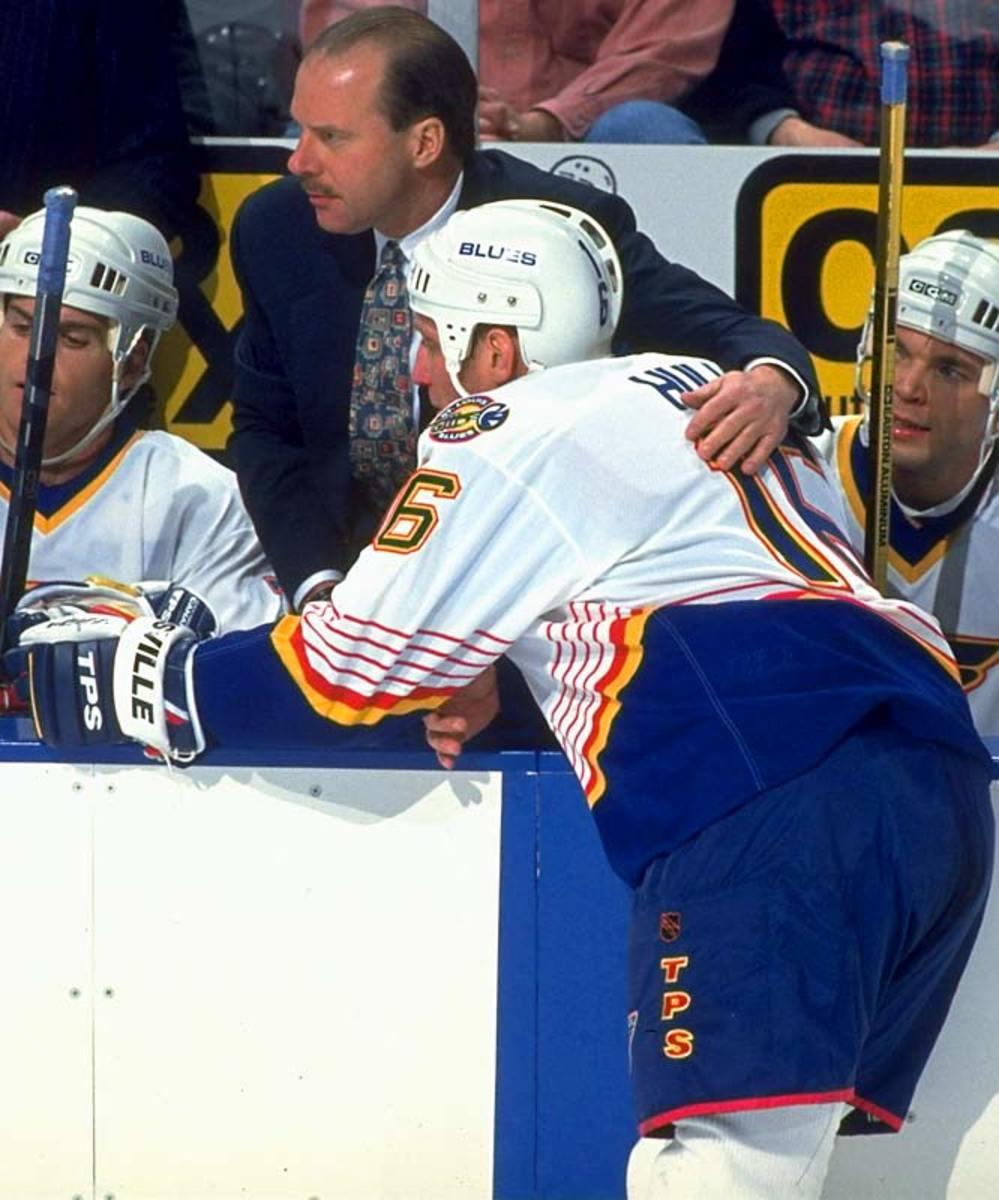
The arrival of Mike Keenan in 1994 made for stormy times in St. Louis as Hull's personality often clashed with the fiery head coach/GM. Keenan would later strip Hull of his captaincy during the 1995-96 season.
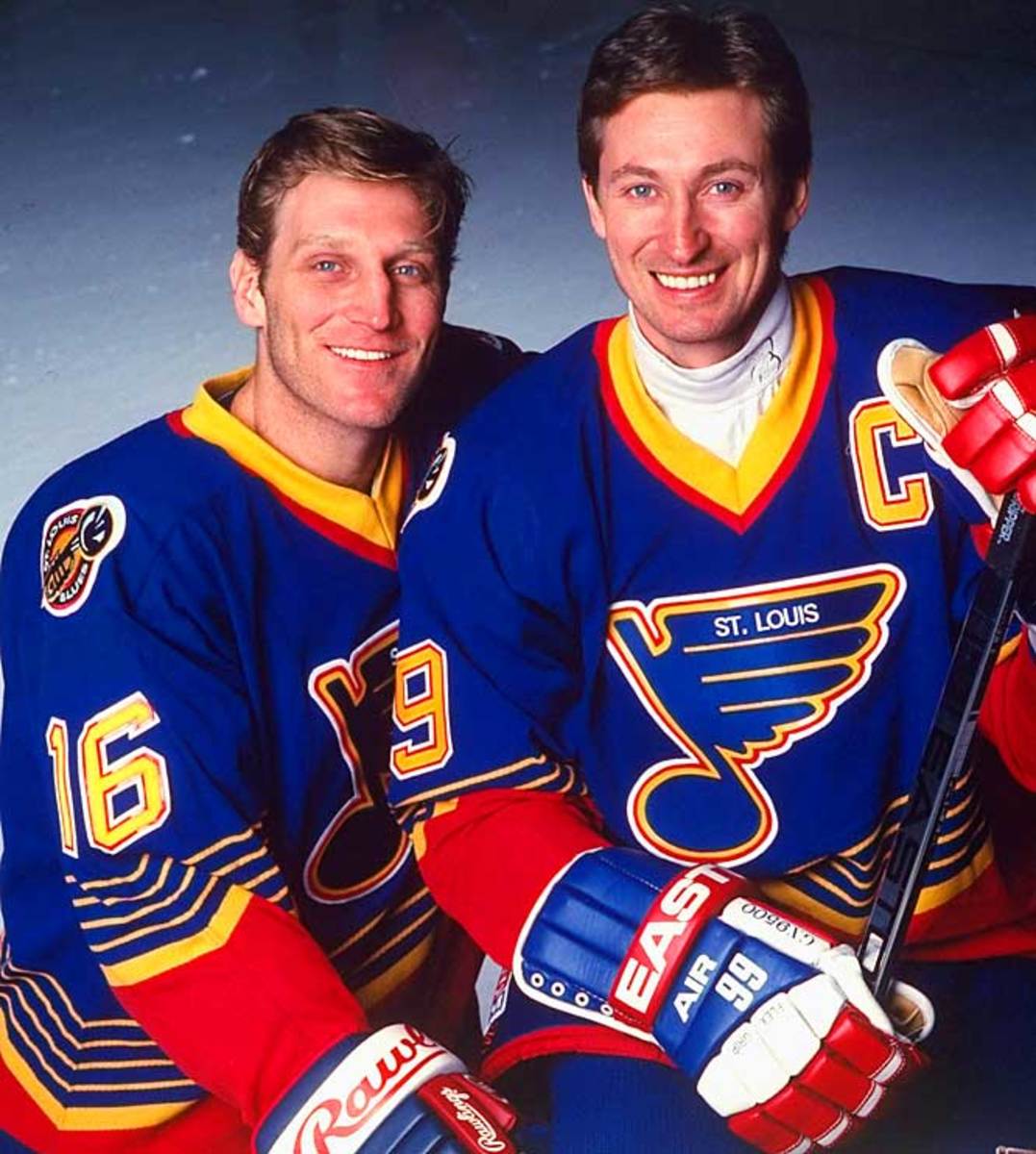
One of the NHL's most anticipated, but short-lived scoring duos was created on Feb. 27, 1996, when Wayne Gretzky was traded to St. Louis by the L.A. Kings. Gretzky would sign with the New York Rangers after the season.
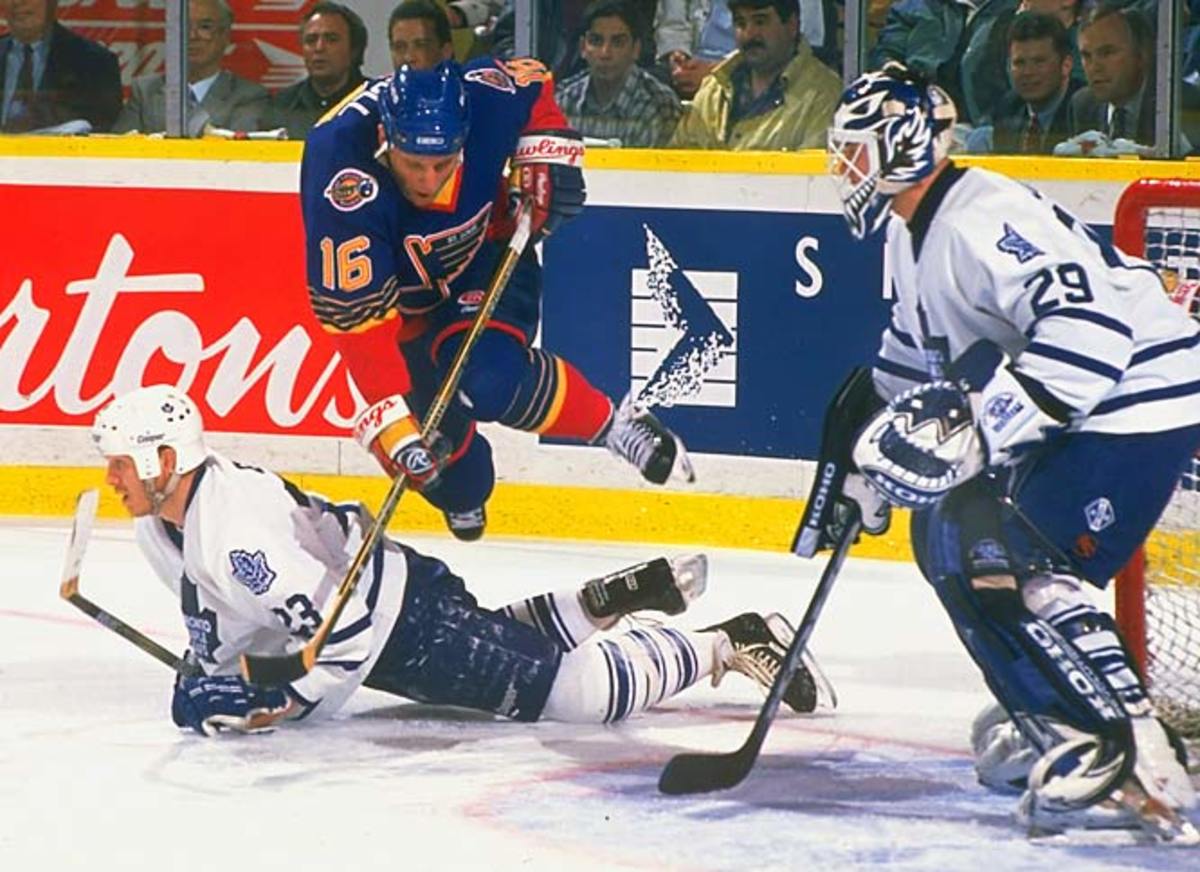
The Golden Brett and the Great One carried the Blues to a first-round win over Toronto before the club squandered a three-games-to-two lead over Detroit in the second round.
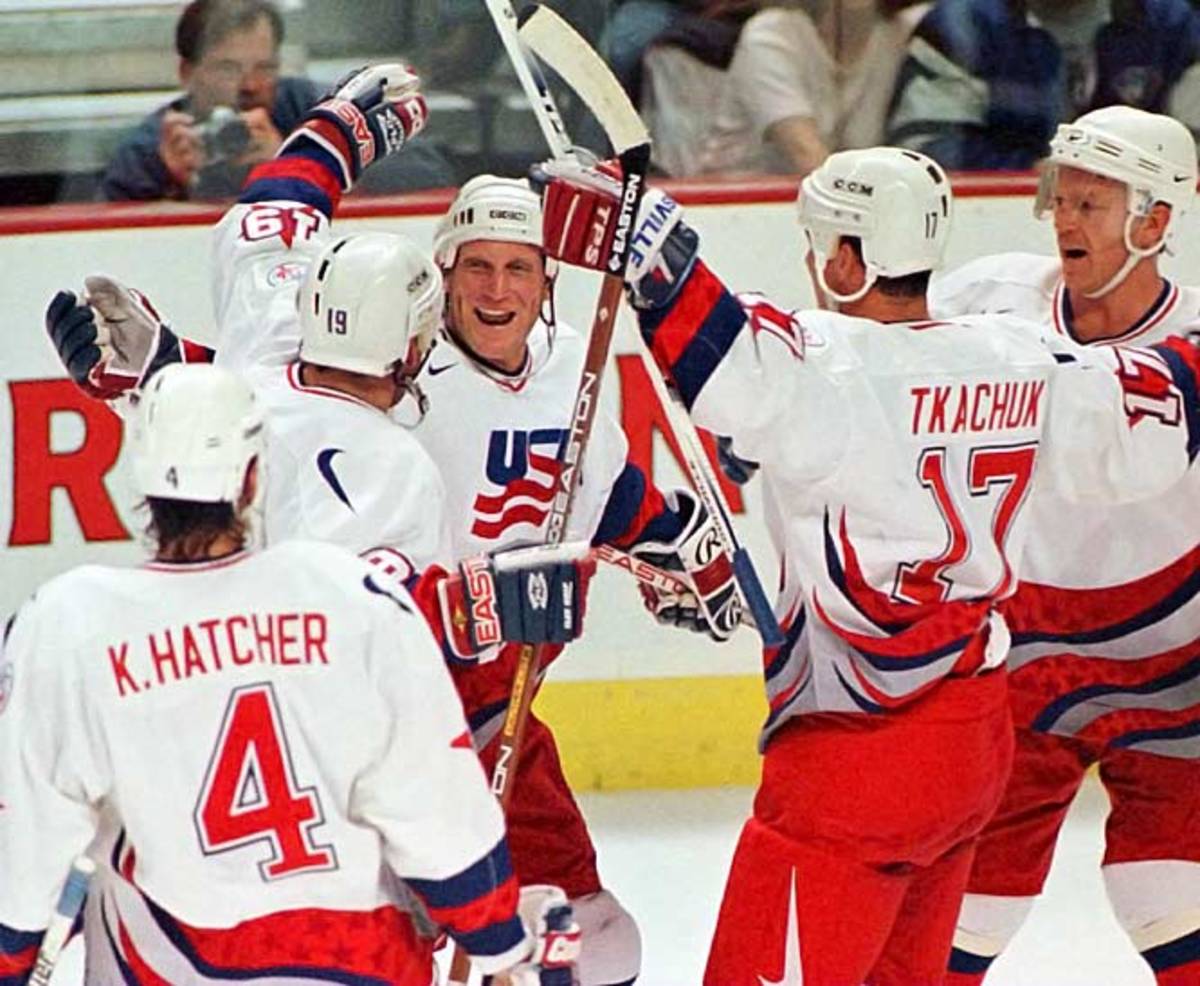
Representing the U.S. in the 1996 World Cup of Hockey, Hull was the team's leading scorer (7 goals, 4 assists). His two tallies against Russia powered Team USA into the best-of-three final where the Americans upset Canada. Hull even sang a version of Aretha Franklin's R-E-S-P-E-C-T on the bench.
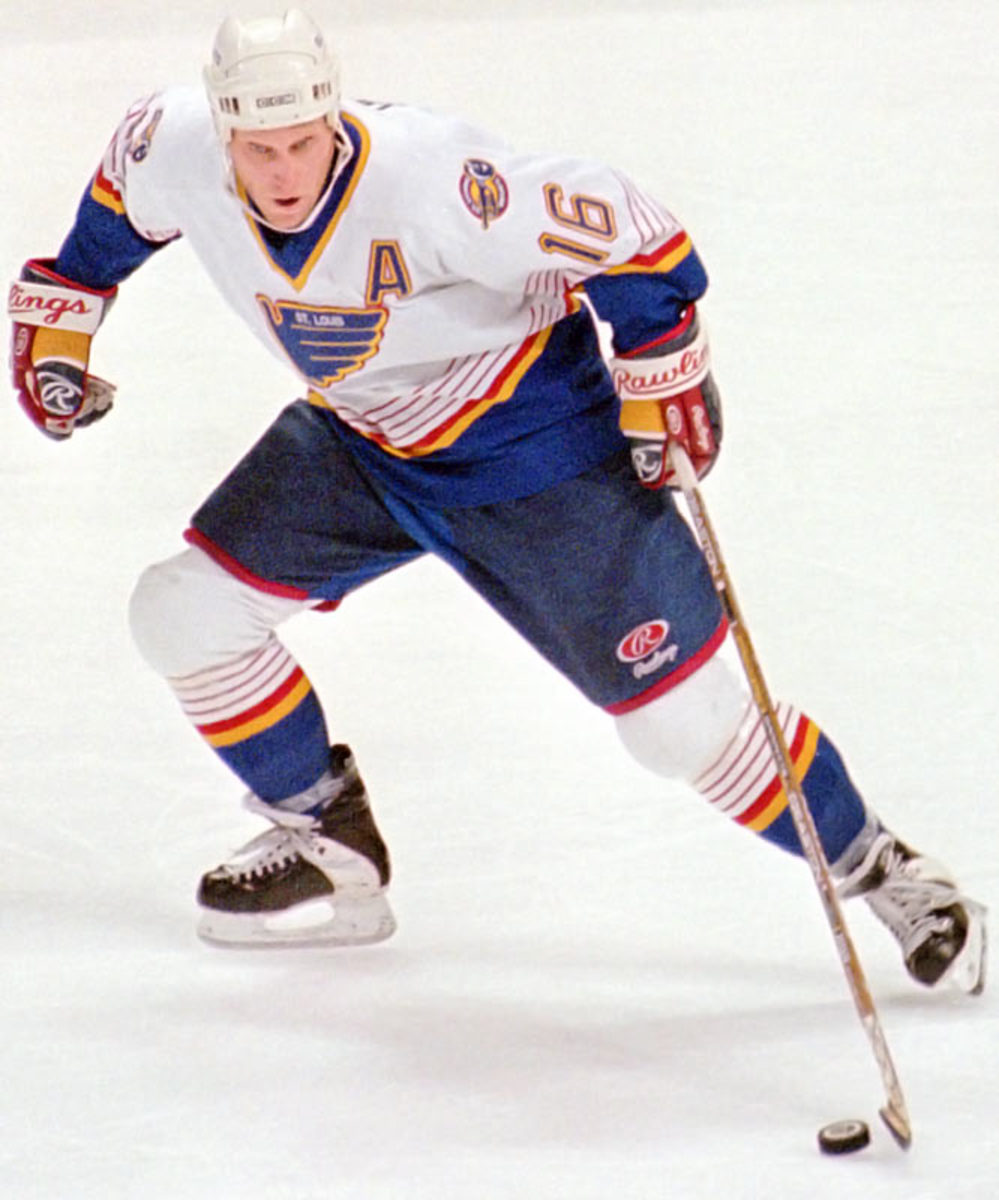
The 1996-97 season saw Hull become the 23rd player in NHL history to reach the 500-goal milestone. He hit the mark in St. Louis with a hat trick against the Kings on Dec. 22.
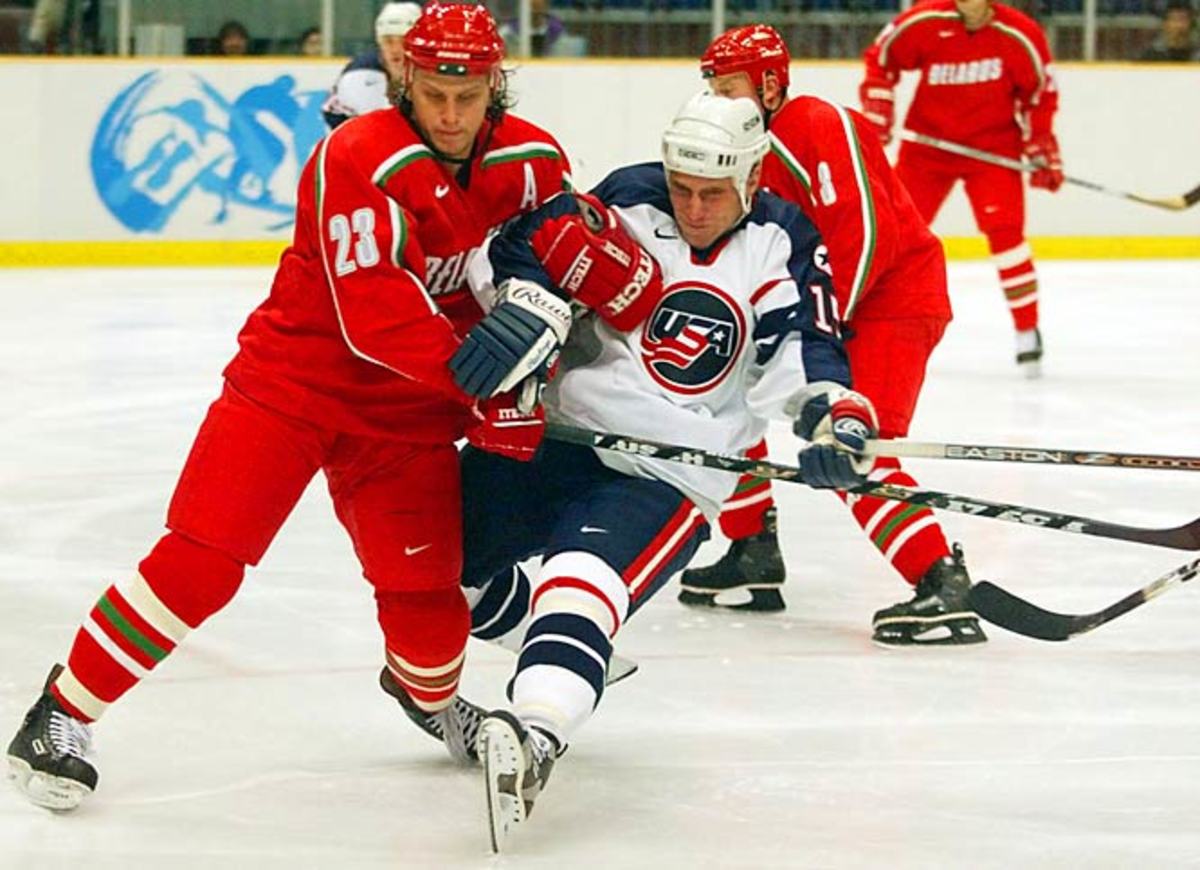
With NHL players participating in the Winter Olympics, Hull joined Team USA for the Games in Nagano, Japan. The outcome was a downer as the gold-medal favorites went home empty-handed, eliminated by Dominik Hasek and the Czech Republic.
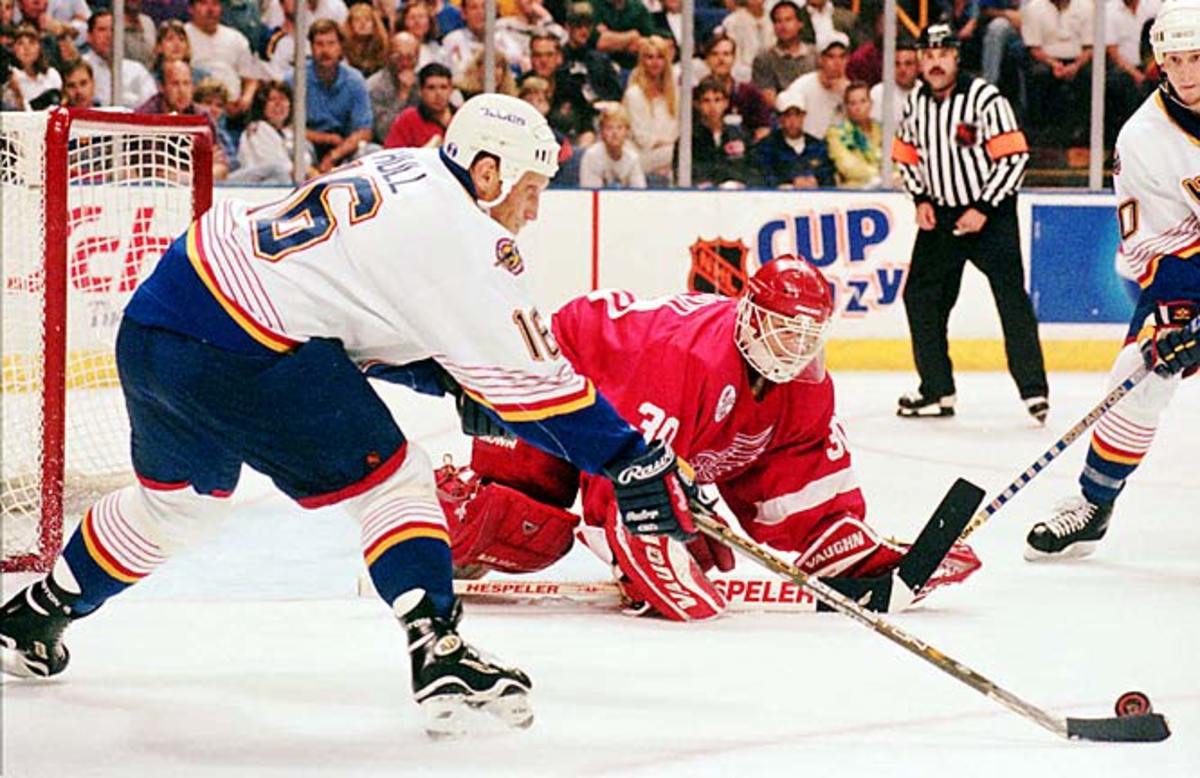
One of the great disappointments of Hull's time in St. Louis was that the Blues never advanced beyond the conference semi-final round during his 11 seasons. His last playoff hurrah came in 1998 with the Blues sweeping the Kings before falling to the defending Cup champion Red Wings.
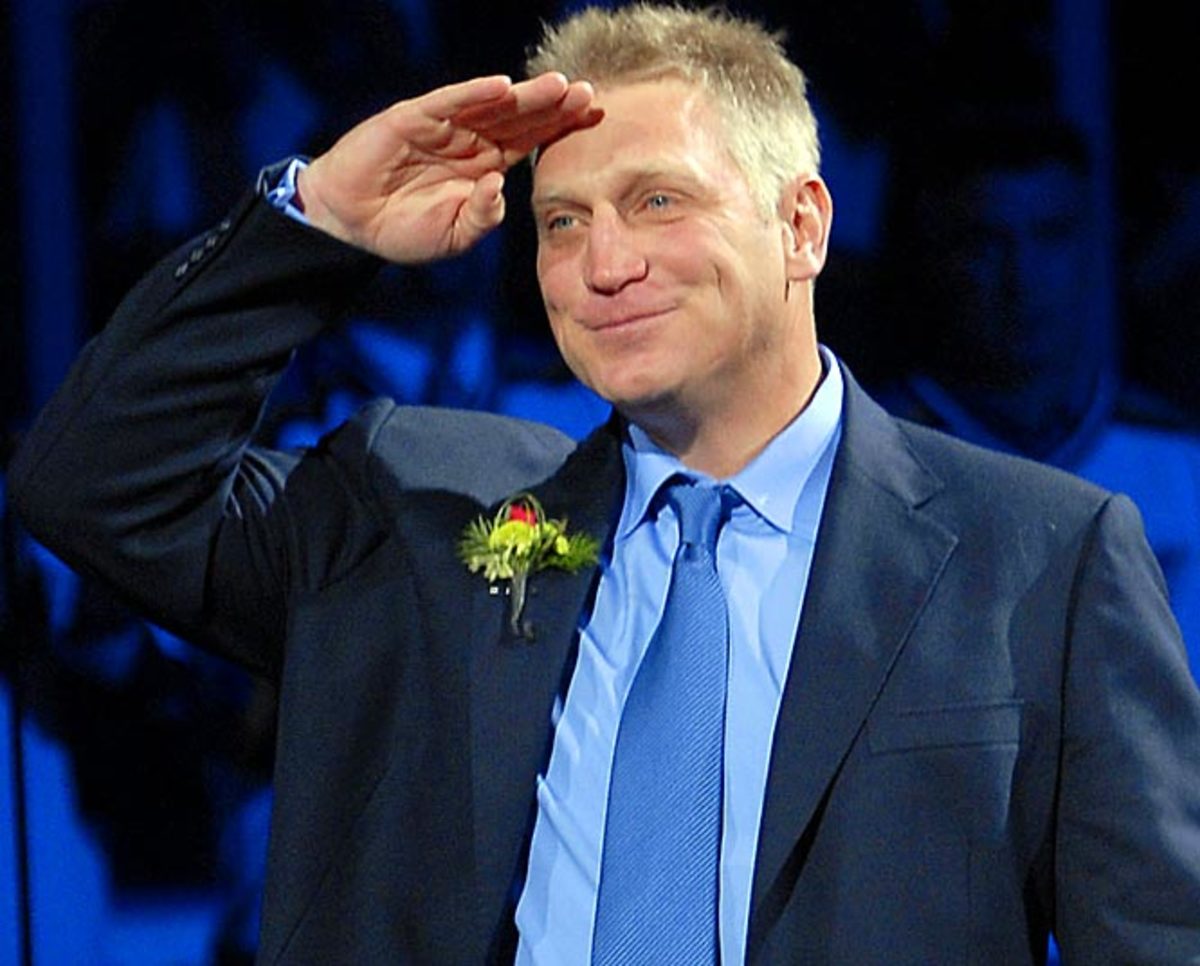
Declining an offer from the Blues, Hull signed with Dallas in July 1998, eventually fulfilling his quest for a Stanley Cup (and, not surprisingly, doing it in a controversial manner). He departed as the Blues' all-time leader in goals (527), hat tricks (27), GW goals (70), power play goals (105), and shots (3,367).
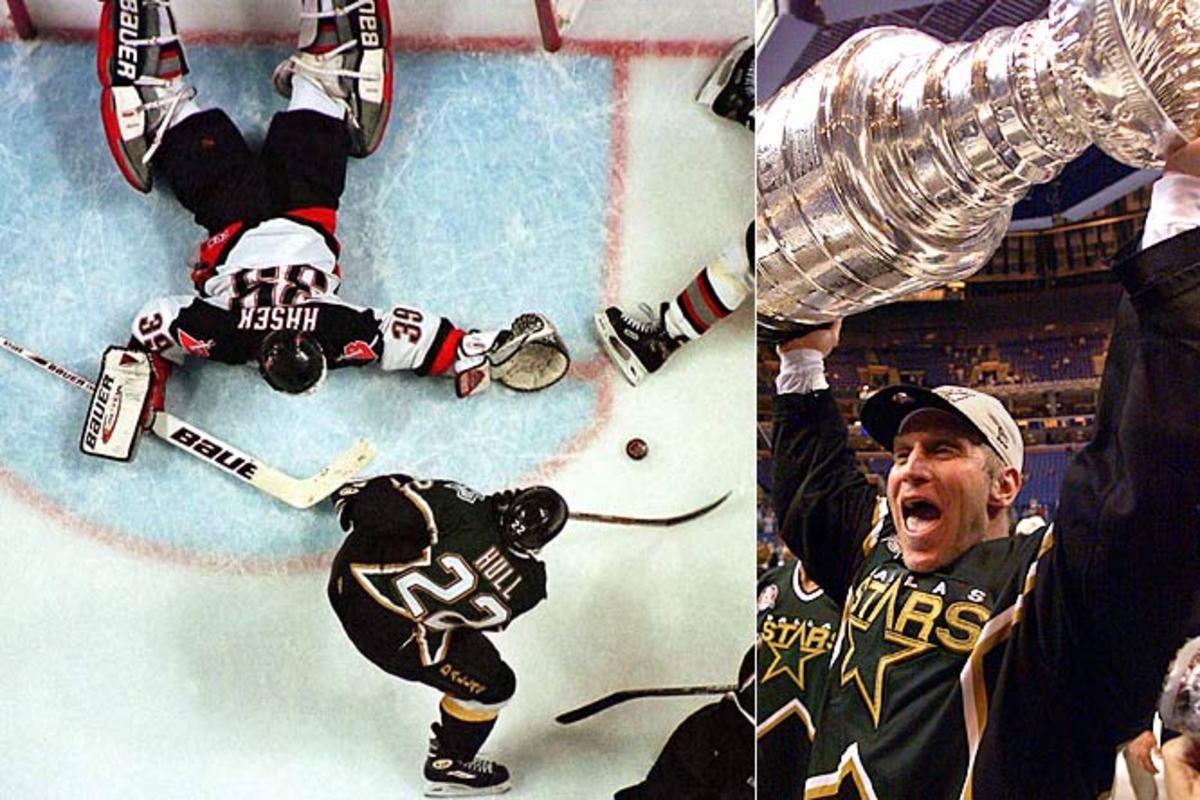
The highlight of Hull's three seasons in Dallas as no doubt his first Stanley Cup, which he won with a controversial goal in Game 6 of the 1999 final vs. Dominik Hasek and the Buffalo Sabres.
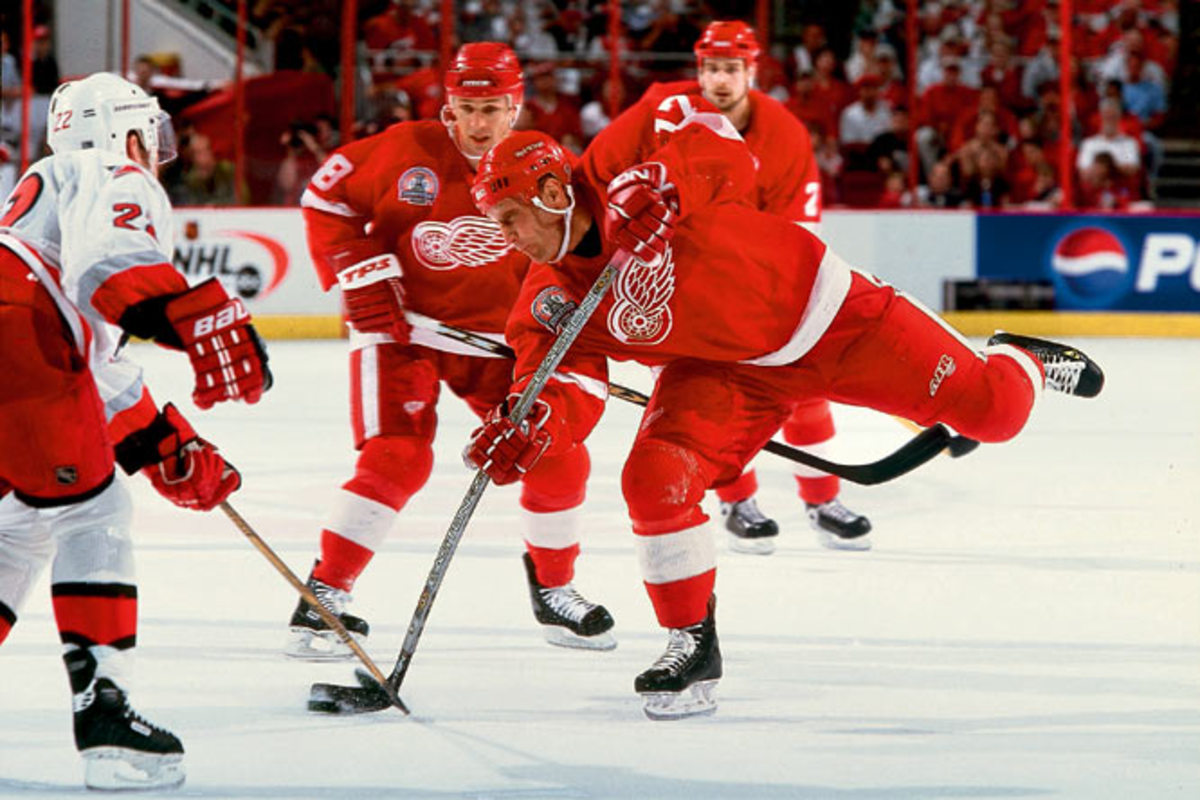
Hull's last three full NHL seasons (2001-04) were spent in Detroit, where he won his second Stanley Cup in 2002, scoring 30 goals for a veteran-laden team that included fellow 2009 Hall of Fame inductees Steve Yzerman and Luc Robitaille, and his old pal Dom Hasek.
